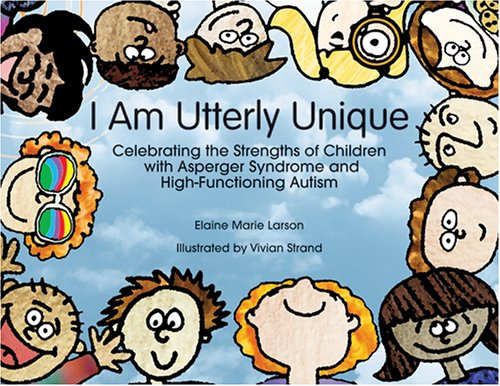Teaching kids about Autism can feel like a daunting task. Whether it is discussing a child’s own diagnosis, sharing with a sibling, or educating an entire classroom, sharing information about Autism should be a solid balance between strengths, differences, and challenges.
Too many times during my fifteen years of experience, I’ve seen professionals err on the side of highlighting the negatives much more than the positives, so that educators are given a skewed perspective and parents leave with a sense of fear and guilt.
Neither of those angles are productive or helpful.
Though there are many tools and options for parents and professionals on Autism, there are few that give solid guidelines on opening the door of communication with the child. I don’t claim to hold all the answers, but wanted to share one of the tools I use when sharing a diagnosis with a child.
One of the materials I use to help me discuss a diagnosis with a child is a book entitled: I Am Utterly Unique. This picture book has been a fabulous addition to my therapeutic toolkit and provides a wonderful stage to start a discussion with children about Autism.
First of all, it presents basic characteristics of Autism in a positive way.
Second, it allows me to take some of the characteristics listed and talk about how they can be both good and challenging (if used to an extreme). For example, “I can superfocus” is a wonderful skill, but it can also be challenging when a child focuses too much on only one thing in school and doesn’t focus on other things in school.
Third, the pictures help support the characteristics discussed in the book. These colorful, bright, and cheerful pics bring the characteristics to life.
Now, from my experience, this book works best with more verbal children who are middle elementary up through early middle school.
Of course, this isn’t the only tool used to teach a child about his/her diagnosis or the diagnosis of a sibling, but it is one means to create a positive environment for communicating about a delicate subject.
If you have more questions about how to share an Autism diagnosis with your child or a child you serve, we’d be happy to try and answer those. This opportunity can be an eye-opening, positive, and sometimes relieving experience for you and your child.
For more information you can find a great parent article on this topic listed at PathFindersForAutism.org.
Talking About Autism With Your Child
Pepper Basham, MS, CCC-SLP




